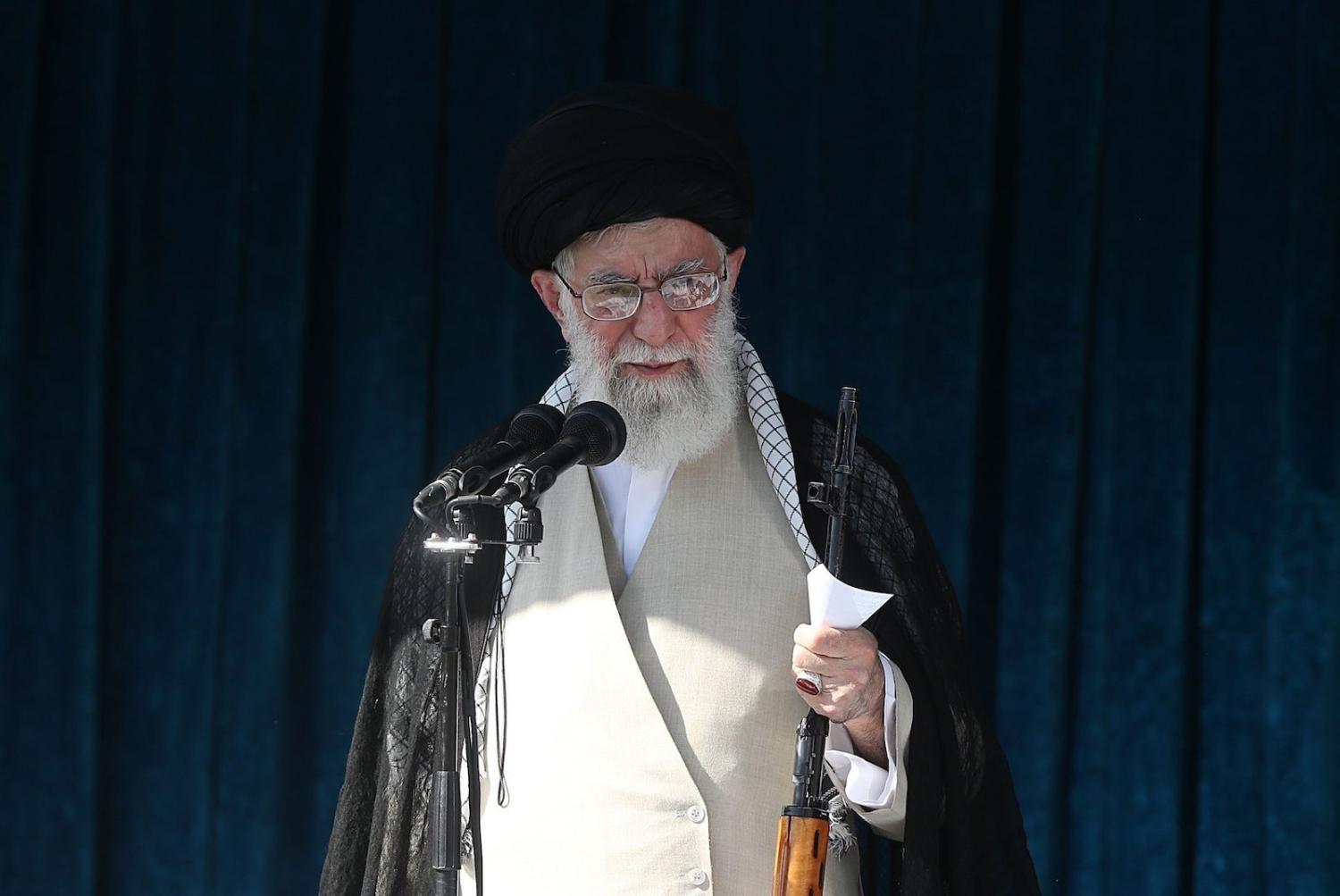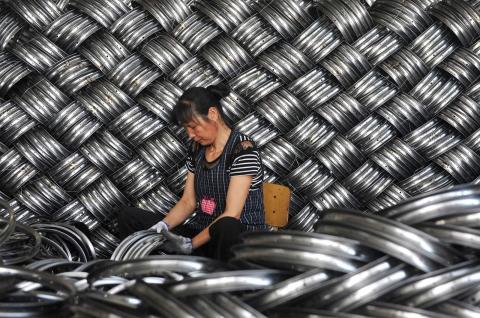Iran has announced that it has exceeded its enriched uranium limit under the nuclear deal, formally known as the Joint Comprehensive Plan of Action, or JCPOA. This follows the decision in May 2018 when the Trump administration unilaterally pulled the US out of the deal and reimposed economic sanctions on Tehran in tandem with its “maximum pressure” campaign.
With deterioration of the economy in Iran, authorities in Tehran have repeatedly been using the conceptual domain of “military war” to describe the renewed US sanctions. Foreign Minister Javad Zarif has frequently used #EconomicTerrorism in his tweets as “solely responsible for insecurity & renewed tension” in the region. More recently on 27th June, he tweeted “Sanctions aren't alternative to war; they ARE war”.
Put together with comments that “war and sanctions are two faces of the same coin” from other leading figures and Rouhani’s threat in December that if Iran is not allowed to export its oil it will not allow other countries in the Persian Gulf to do so, it leaves little doubt that Iran is on a path of escalation. The attacks on tankers in Persian Gulf and the Gulf of Oman in May and June respectively and the downing of the US RQ-4A Global Hawk further back this up.
The logic of decision-making in Tehran
For a long time, Supreme Leader Ali Khamenei and the Iran Revolutionary Guard Corps have had a nightmare that the US and its regional allies might repeat the Iraq-scenario of the 1990s and 2000s, with a goal to collapse the Iranian economy, generate popular uprisings where possible, and weaken Iran’s financial and logistical support to its proxies in the region. Then, the argument goes on, the US will start to dissemble Iran’s nuclear and missile capabilities in reward for partial sanctions relief (like Iraq’s “Oil-for-Food Program”), only to then deliver a final military strike. The result would be a low-cost and an easy victory for the US.
For a long time, Supreme Leader Ali Khamenei and the Iran Revolutionary Guard Corps have had a nightmare that the US and its regional allies might repeat the Iraq-scenario of the 1990s and 2000s.
Khamenei wants to deny the US of such a painless success by raising the costs for Washington and its regional allies. He and IRGC commanders believe that the US is not willing and equipped for another war in the region, so instead of being caught in a trap of piecemeal incremental defeat, Iran needs to act now.
Khamenei and IRGC want to capitalise on the inability or unwillingness of the US to begin a new war in the Middle East. They think Washington’s long-term strategy is to focus on China and Russia, and it needs to pull its forces out of the Middle East. In addition, any new all-out war will drain US of its economic and financial sources or cost Trump a second term as President. Tehran also thinks that if Washington takes into account Iran’s asymmetrical warfare capabilities in the region, it naturally should not start a war. This includes proxies ranging from the battle-tested Hezbollah in Lebanon with its alleged tens of thousands of mid-range missiles, to Houthis, Iraqi Hashd al-Shaabi, and others in Syria and Afghanistan. Thus, Zarif pointed out clearly that “‘Short war’ with Iran is an illusion and whoever begins war will not be the one ending it”.
The IRGC also might have ruled out the possibility of a serious popular uprising in Iran in the near future. It has effectively contained any potential dissident network by its sophisticated hard and soft technologies of political suppression. Worse, IRGC gain popularity after Trump betrayed Rouhani by pulling out of the nuclear deal. A potential war with Iran will only add to their influence, as proved by their downing of the US drone recently.
Until now, the IRGC’s predictions about the US unwillingness to escalate have held, but not line by line. The US abstained from escalation after the tanker attacks, has not endorsed any retaliation following the drone attack, and has offered negotiations to solve the problem. However, what the the US has not done is lift any sanctions (instead introducing new ones) and hasn’t granted any exemption for oil export as Tehran had expected.

The limits of Iran’s logic
The first problem is Tehran’s flawed perception of the decision-making mechanisms in Washington in general and the Trump administration in particular. Often, Tehran sees the political decision making in the US as a centrally orchestrated, systematic, facts-based process for maximizing the American national interest, however it is defined. The reality might be messier and more unpredictable than what strategists in Tehran think.
An Iranian overinvestment on the negative effect of war on Trump’s re-election prospects also ignores the fact that as events are folding out, some scenarios might appear in which might make Washington’s military engagement more beneficial for Trump’s re-election. Imagine a situation in which substantial American lives are lost which might trigger a nationalistic wave of retaliation among the people.
Tehran’s calculations also prove to be faulty in that recent escalations have pushed more European countries toward Washington. It has also left China extremely concerned about its energy security, given 44% of its oil imports comes from the Middle East. As for Russia, clearly Iran’s absence from the oil market would be a godsend, as it can fill the current highly competitive global oil market.
In Iranian domestic politics, the IRGC thinks that a foreign threat will provide more plausible excuses to for implement stricter censorship policies (reports indicate that new rounds of restrictions on internet has already started), making the political environment in the country even more repressive. However, this might not unfold as predicted if things matters out of control with, say, an armed rebellion similar to Syria in border and ethnic-minority areas of Iran.
All in all, IRGC’s overestimation of its capabilities vis-à-vis US in any future military standup, plus, capitalizing on the US’ incapability and unwillingness to engage in a new war in the Middle East, might be an extremely dangerous gamble.

